High doses of caffeine can have the reverse effects. In pure form caffeine is a bitter white crystalline powder.
 How Does Caffeine Affect The Body Discovery Express
How Does Caffeine Affect The Body Discovery Express
They recommend a maximum intake of 400 mg a day.

What does caffeine do to the body. It operates on the brain using the same mechanisms as amphetamines cocaine and heroin to stimulate the brain. It paralyzes and kills insects that attempt to feed on them. It keeps you active and alert.
Adenosine is what helps you feel drowsy when its time to go to sleep. But caffeine has significant effects on the body and physical health. However strong negative effects of caffeine on blood pressure have not been found in clinical trials even in people with hypertension and cohort studies have not found that coffee drinking is associated with a higher risk of hypertension.
Caffeine can affect sleep as well. The pituitary tells the adrenal glands located above the kidneys to flood the body with adrenaline. The Effects of Caffeine on Your Body Central nervous system.
It works by blocking the effects of adenosine a brain chemical that makes you feel tired. It is even an ingredient in beverages and foods that are marketed to kids. Caffeine is a stimulant drugit may surprise you to realize that this is the same type of drug as cocaine and meth substances we think of as hard drugs.
Plants produce caffeine to deter pests and to prevent nearby seeds from germinating. At the cellular level caffeine blocks the action of a chemical called phosphodiesterase PDE. That can sometimes be helpful especially in the morning or when youre trying to work.
There is no requirement of caffeine in the human diet for the body to function properly. Caffeine excites our brain cells which tells our hormone control centre the pituitary gland that theres an emergency. Heres whats really happening when you drink it.
Caffeine boosts your energy and mood and makes you more alert. Caffeine is an addictive drug. Caffeine can interact with the same brain receptors as adenosine and.
Caffeine is a stimulant. However caffeine also pumps up our adrenaline levels which can leave us irritable. The effects of caffeine on the central nervous system come from stimulation and in low doses it can help with improved attention and concentration.
In low doses taken long-term coffee has been shown to reduce fatigue and increase alertness. When imbibed through various beverages such as coffee tea and soft drinks it produces a state of increased wakefulness focus motivation and elevated mood. Caffeine in plants acts as a natural pesticide.
This is one of the reasons it is addictive. It acts by reversibly blocking adenosine from binding a receptor that causes drowsiness. Sure it helps you get through your morning meeting but its effects are potentially way longer-lasting.
But do you really know what caffeine is doing to your body. The caffeine enters your bloodstream and quickly finds its way to your brain where. As a stimulant caffeine affects your central nervous system including dilating the blood vessels in your brain which makes you feel more awake and alert.
Caffeine is a stimulant. At the same time it triggers the release of adrenaline the. Caffeine is habit-forming and as with most drugs of this nature the tolerance levels develop over time.
Caffeine is a central nervous system stimulant and binds to adenosine receptors in your central nervous system. When it reaches your brain the most. Caffeine is a stimulant of the central nervous system CNS the cardiac muscle increases heart rate and respiratory system relaxes air passages permitting improved breathing and allows some muscles to contract more easily.
As caffeine is absorbed through the stomach its then relayed to the central nervous system which tells the bodys functions to speed up. That near-instant effect is why so many coffee-lovers count on a cup of brew to perk them up in the morning. Caffeine is a stimulant that works on the Central Nervous System.
The effect can be fairly immediate says Burak. What does caffeine do to your body. Caffeine is known to increase alertness.
Caffeine--the drug that gives coffee and cola its kick--has a number of physiological effects. From your brain to your bowels coffee does work on your body. Caffeine stimulates the heart increases blood flow and increases blood pressure temporarily particularly in people who do not usually consume caffeine.
What caffeine does to the body. Although it is milder than the other drugs it is manipulating the same channels. Caffeine acts as a central nervous system stimulant.
Caffeine increases the amount of acid in your stomach and may cause heartburn or upset. Coffee tea and chocolate all contain caffeine. Though your body doesnt store it caffeine.
Digestive and excretory systems. Just like it did to the brain caffeine now tells your heart to beat faster as well.
Caffeine The Silent Killer Of Success Huffpost Life
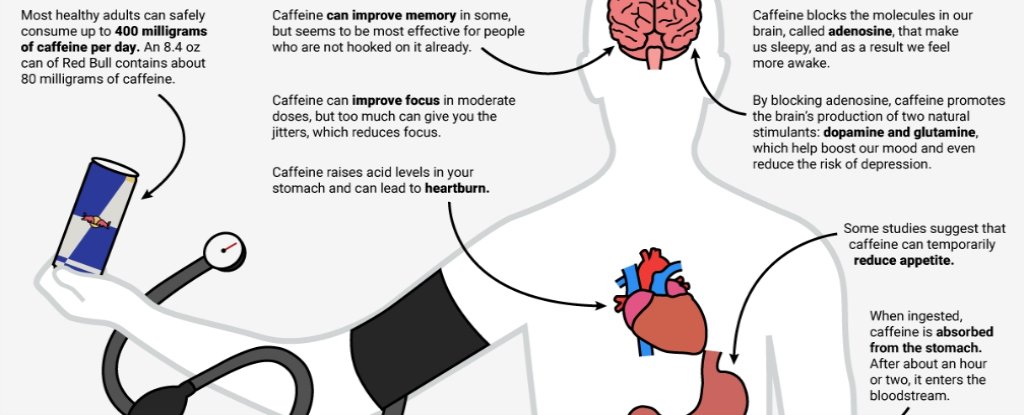 All The Ways Caffeine Affects Your Body In One Handy Infographic
All The Ways Caffeine Affects Your Body In One Handy Infographic
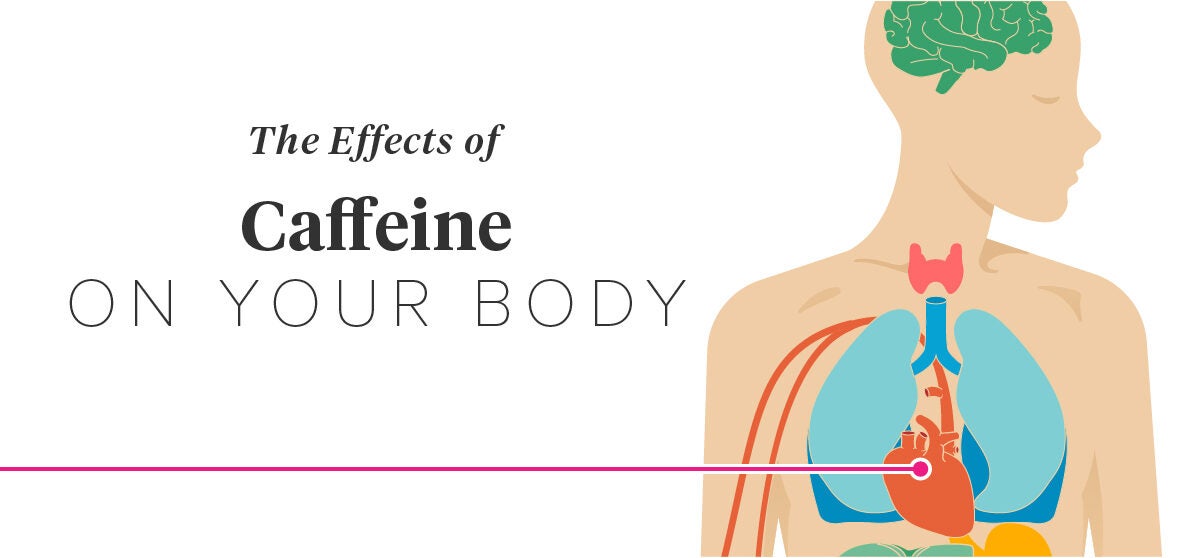 The Effects Of Caffeine On Your Body
The Effects Of Caffeine On Your Body
 How Long Does Caffeine Last In The Body New Idea Food
How Long Does Caffeine Last In The Body New Idea Food
 Caffeine The Silent Killer Of Success
Caffeine The Silent Killer Of Success
 What Happens To Your Body After You Drink Coffee Coffee Effects Coffee Drinks Coffee Benefits
What Happens To Your Body After You Drink Coffee Coffee Effects Coffee Drinks Coffee Benefits
 The Effects Of Caffeine On Your Body
The Effects Of Caffeine On Your Body
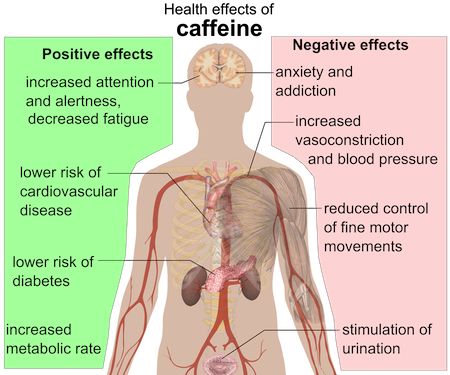 Caffeine And Its Effects On The Human Body
Caffeine And Its Effects On The Human Body
 So What Exactly Is Caffeine And Its Side Effects Coffee Is Best
So What Exactly Is Caffeine And Its Side Effects Coffee Is Best
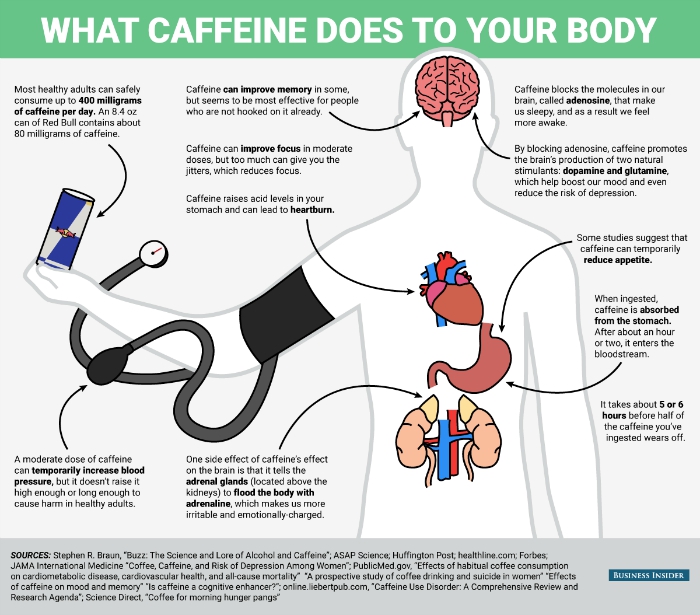 All The Ways Caffeine Affects Your Body In One Handy Infographic
All The Ways Caffeine Affects Your Body In One Handy Infographic
 Are You Drinking Too Much Caffeine During Finals Week
Are You Drinking Too Much Caffeine During Finals Week
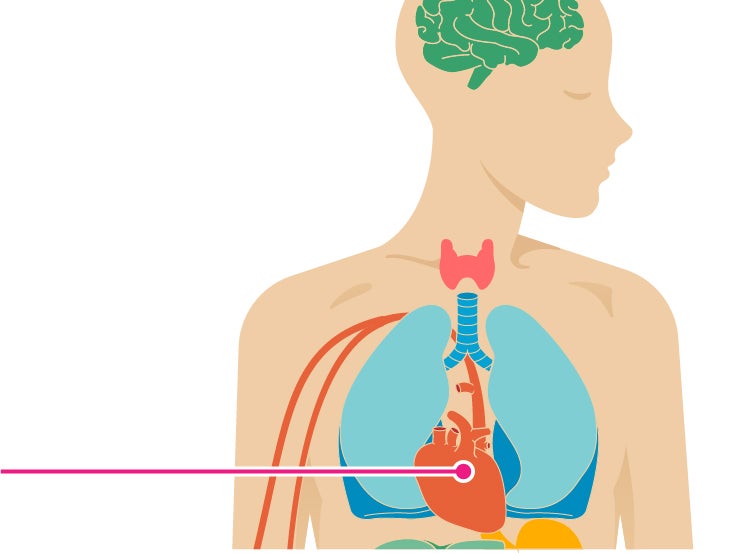 The Effects Of Caffeine On Your Body
The Effects Of Caffeine On Your Body

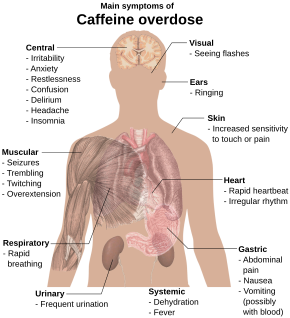
Kommentare
Kommentar veröffentlichen